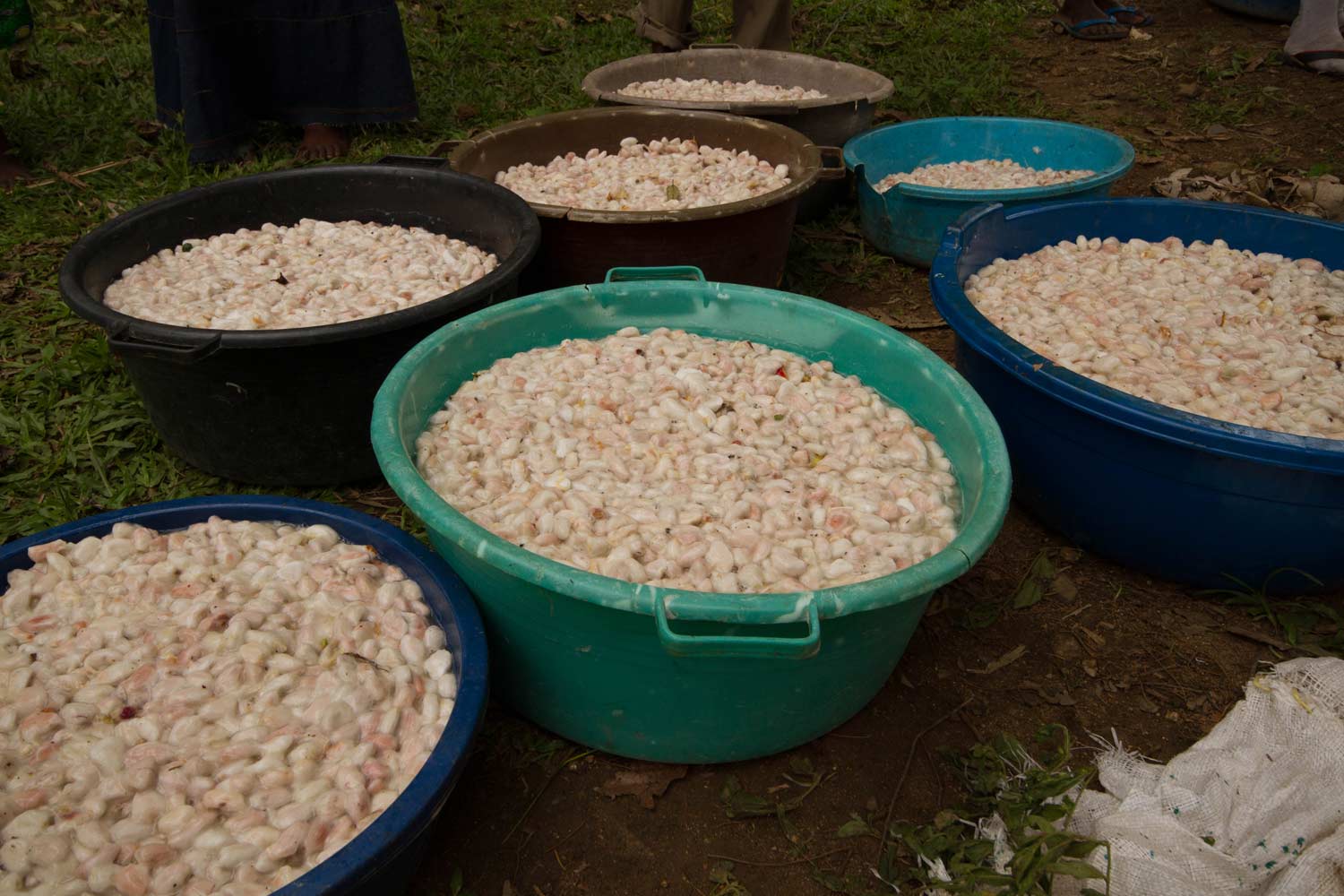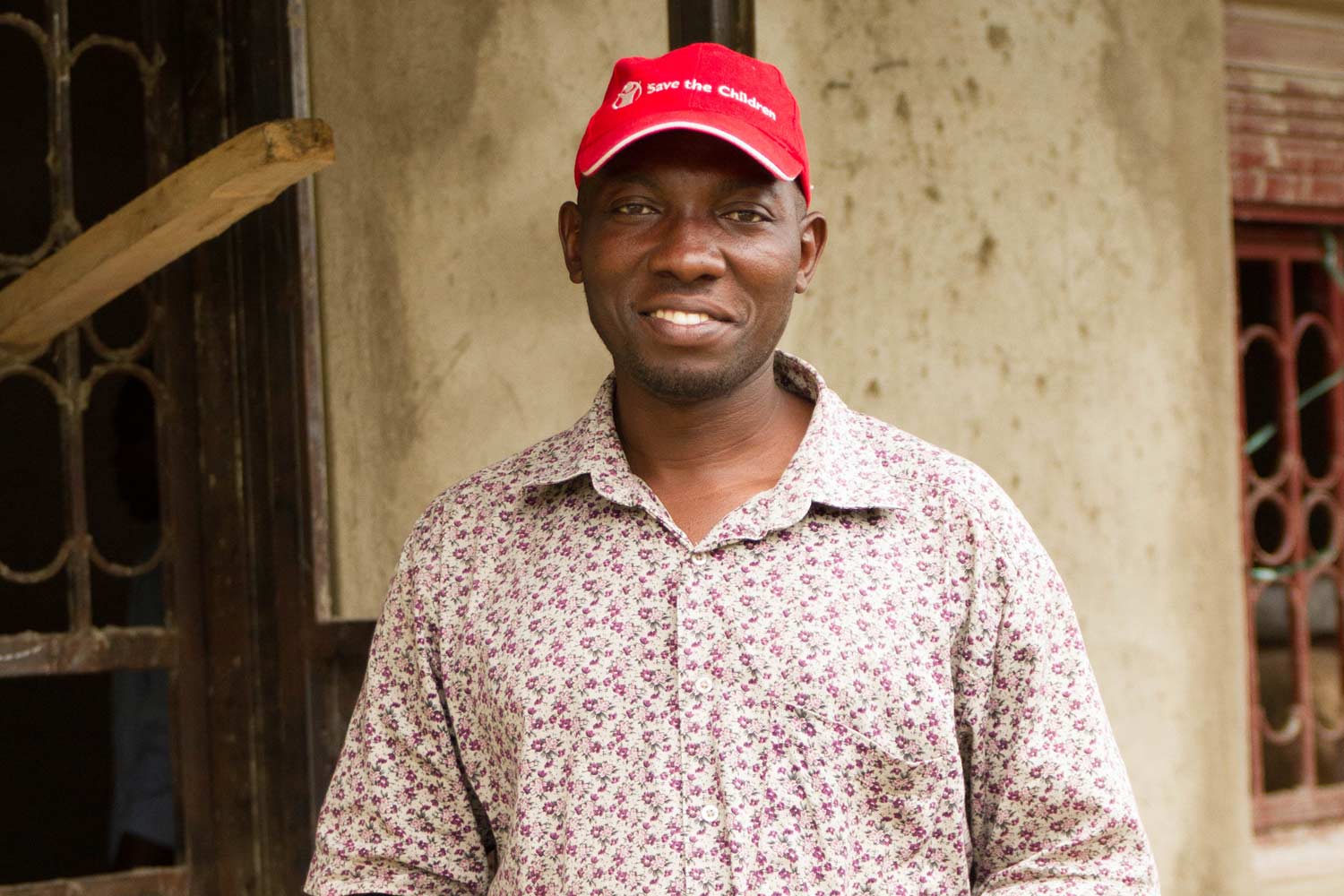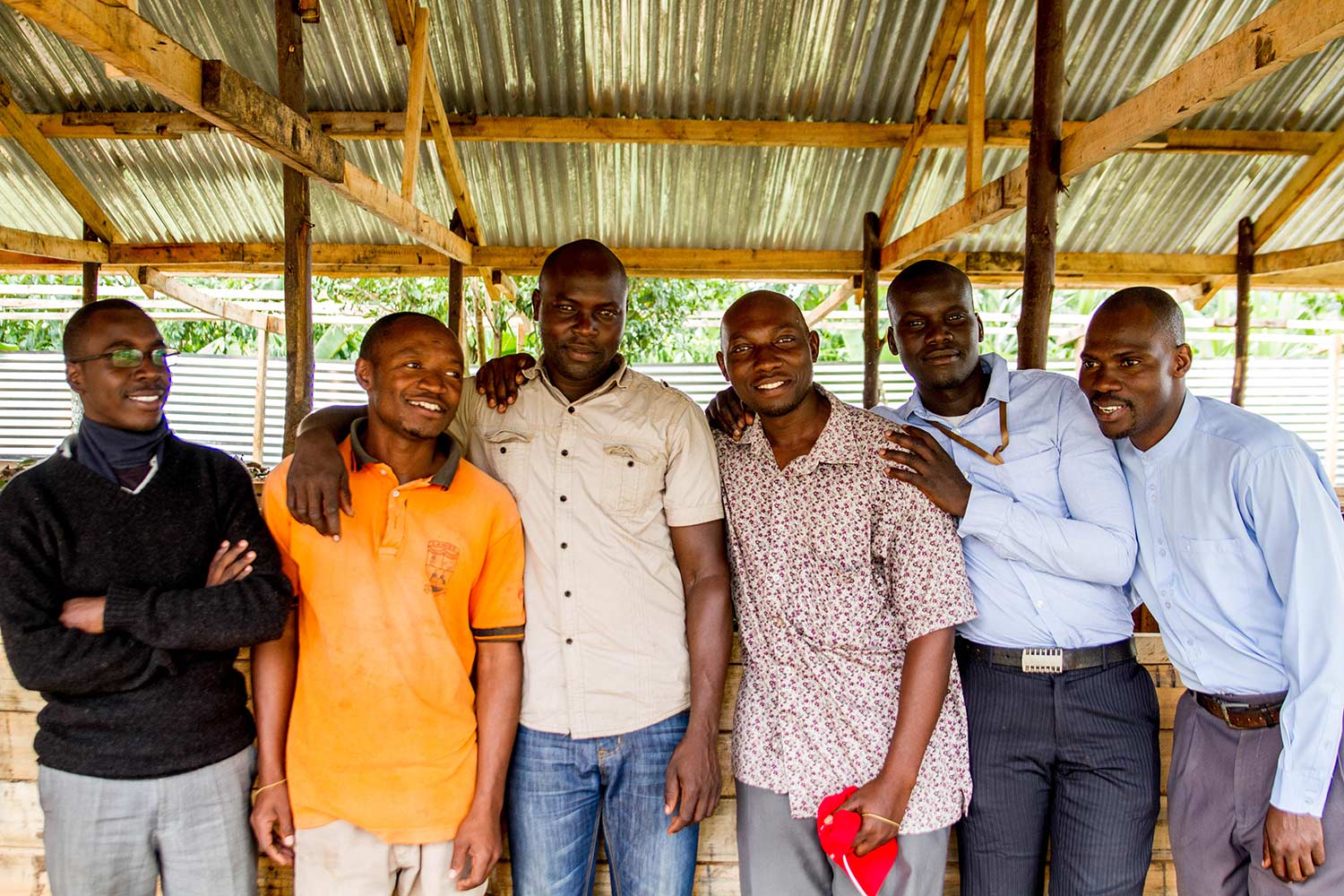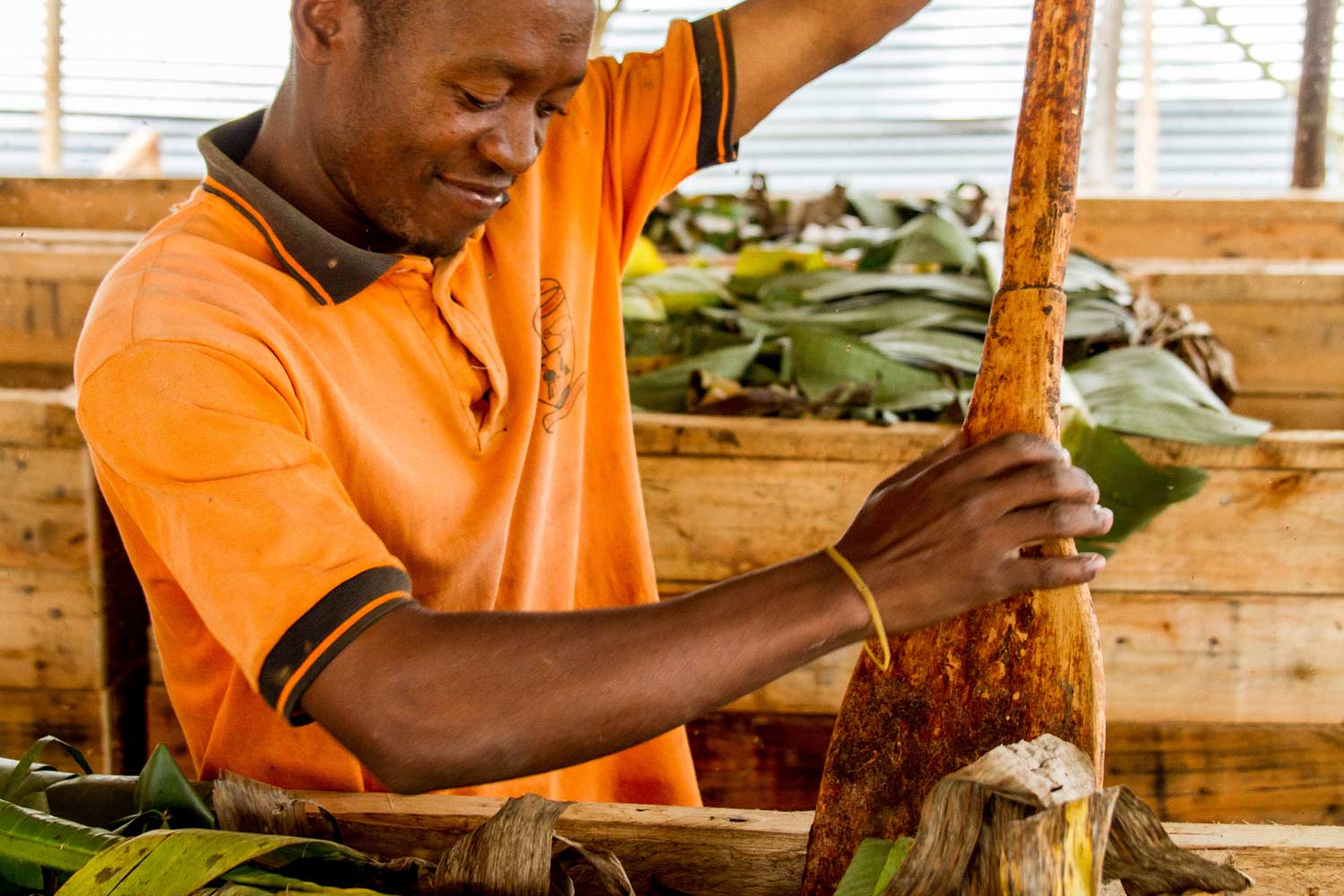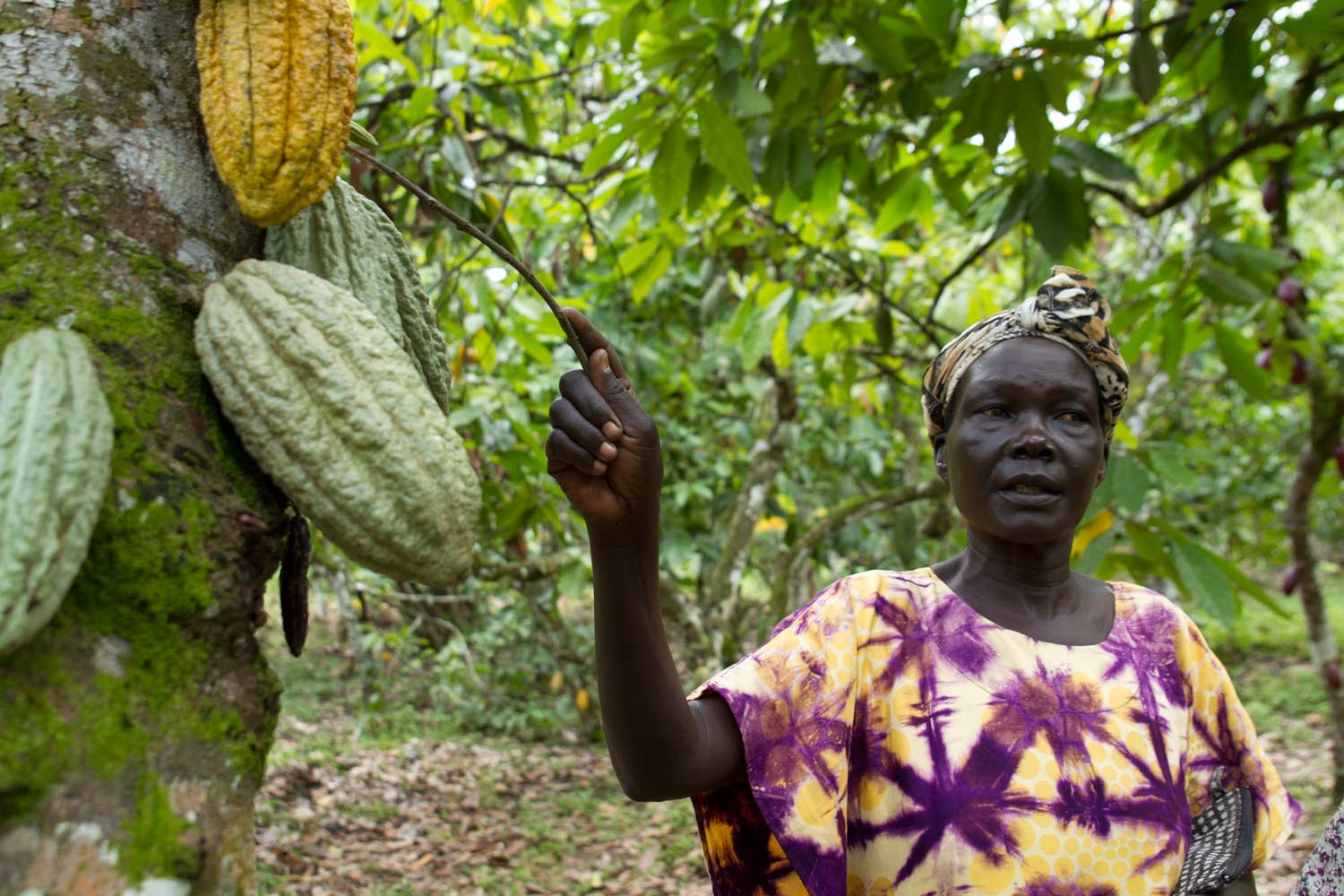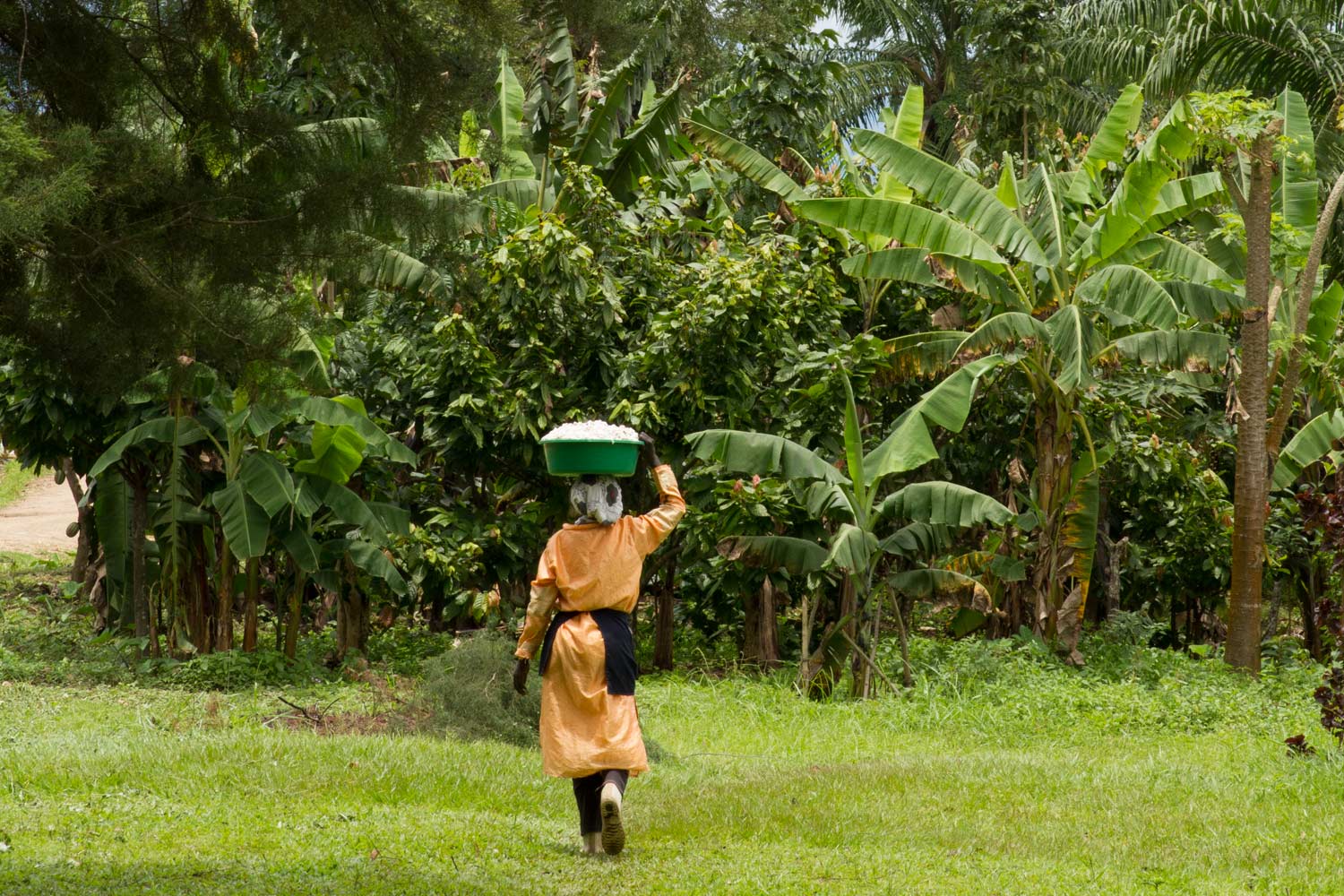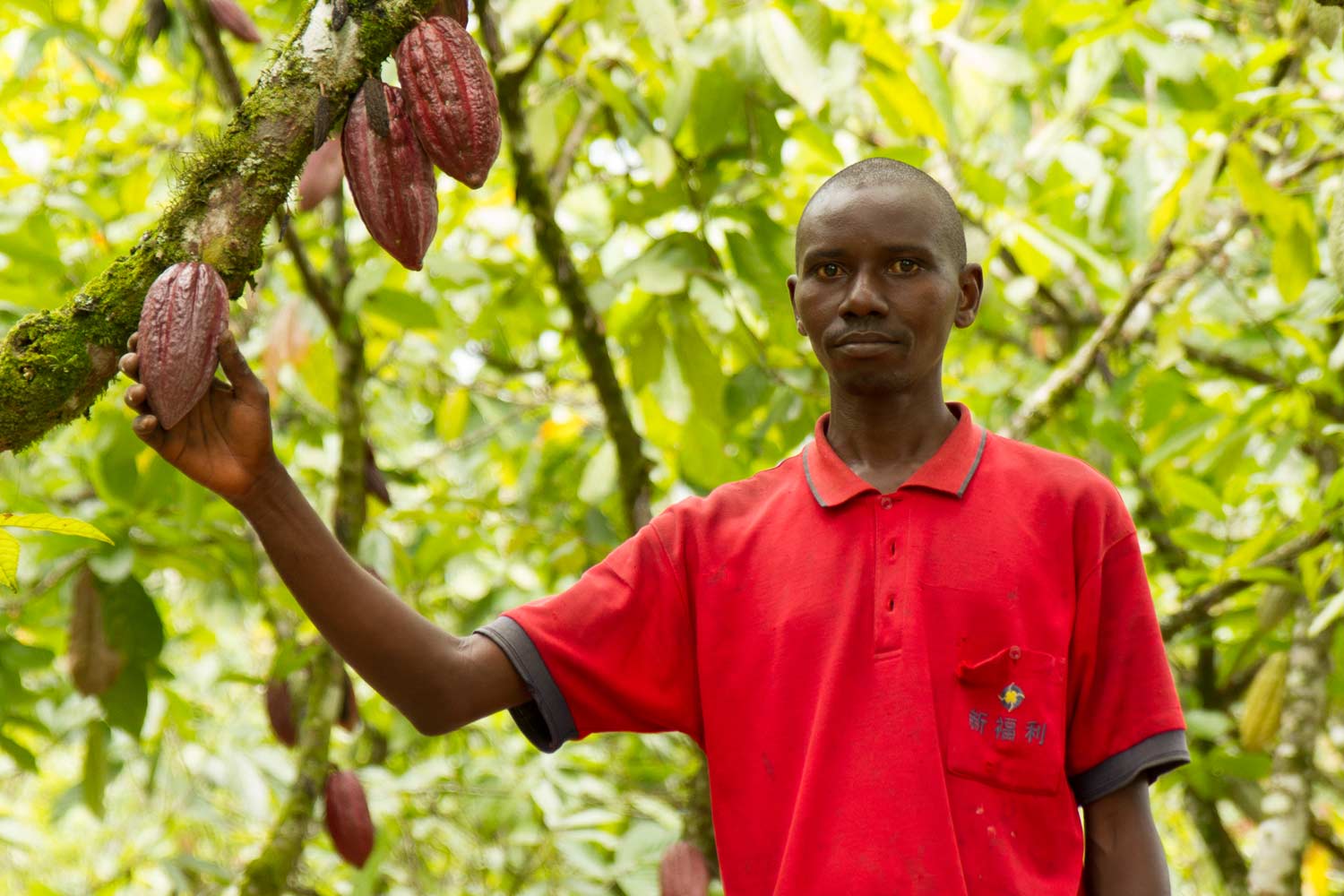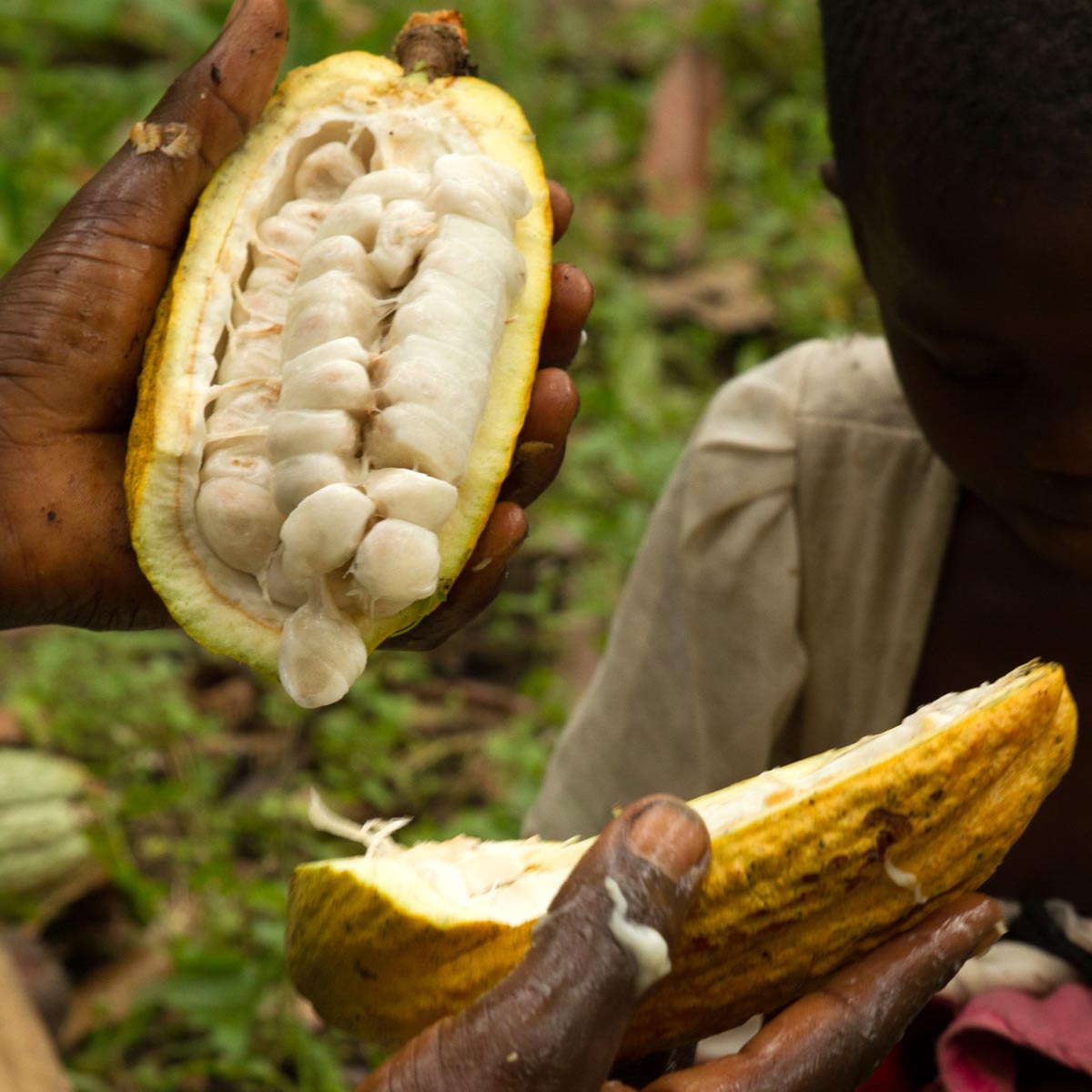
Request info
Fill in the form to request information for placing an order, availability, pricing and/or logistics.
Pay online through PayPal
Flavor
Rich base cocoa with balanced fruit acidity and sometimes notes of brown sugar/panela.
Physical aspects
Moderate size beans with 85-90 beans per 100 grams. Hand sorted to remove flat beans and other defects. Average defect rate: 2%
Genetics/Cultivars
Mostly Trinitario and Amelonado
Certifications and Trade Relationship
Organic, uncertified. Direct trade.
Source Details
Raw Material Source & Climate
Individual smallholder farmers surveyed and contracted by company staff supply our fermentation facility. Collection locations are located along one stretch of road running through the Galiraya, Kisonko and Buganikere communities. Cacao from these locations is blended throughout the process.
The Rwenzururu sub-region of Uganda sits at 3,000 feet above sea level and borders the DR Congo, the Rwenzori Mountain range and Semuliki National Park. The climate is tropical with over 1,000mm of rainfall which typically occurs in 2 seasons, March to April and September to January. The region suffers from recurring conflict between cultural and rebel groups straddling the DR Congo border. Bundibugyo district likely accounts for more than 70% of cocoa production in Uganda.
Wet cocoa is purchased from over 500 contracted smallholder farmers, each with 1-2 hectares of cocoa trees, often divided between several plots. Staff collect cocoa in the afternoon of harvest day from contracted farmers from established collection points near the farms. Farmers are paid cash on the spot for fresh cocoa at 40% of the dry cocoa market price. 10-20% bonuses are then paid to farmers at the end of the season based on delivered volumes and consistency of deliveries (required 1x per month to ensure consistency of source material)
Owners, Management Employment
Latitude Trade Company Ltd is a Ugandan registered social enterprise owned and managed by Jeff Steinberg. Originally from the US, Jeff has lived and worked in Sub-Saharan Africa for the past 5 years as a consultant on program design and impact evaluation for companies and public-sector actors working with smallholder farmers throughout the region.
Jeff moved to Uganda in 2016 to work with the Gulu Agricultural Development Company (GADC), an agro-processing company in Northern Uganda trading in cotton and sesame. With support from GADC founder Bruce Robertson, Jeff moved to Western Uganda to help build the quality of agriculture products in the region in an effort to re-define the origin reputation and increase smallholder farm incomes. Latitude Trade Company is active in the cocoa, coffee and maize value chains throughout Western Uganda.
The company employs four core management staff hailing from all corners of the country for procurement and operating the processing facility. Local farmers are engaged for mobilization of farmers and collection of fresh cocoa during harvest days.
Farming Communities
In each agricultural area, community members and leaders are engaged and paid for their regular assistance in mobilizing farmers as well as coordinating harvest and weighing.
Communities in this area mandate specific harvest days 2x per month in order to prevent thefts.
Most local farmers have 1-2 hectares of cacao trees either owned as family land or leased from other farmers.
Harvest Season
While cocoa trees are flowering year-round in many areas, there are two primary cocoa harvests corresponding to the rainy seasons – the main typically runs September to January and a smaller harvest occurring in March-April.
Post-Harvest Handling
Site & Design
The fermentation facility and store is located in a converted B&B in the village of Bumate at the base of the hills leading into the mountains. With a shortage of available land in the district, the site is designed to take advantage of all possible available sunshine while limiting runoff from heavy rainfall.
Fermentation
Paired box fermentation built with eucalyptus timber sourced from local timber plantations. Boxes are 500kg capacity with removable shutters to allow turning cacao for uniform fermentation. Fermentation temperatures are recorded at regular intervals 3x daily. Total duration of fermentation varies from 5.5-6.5 days.
Drying
Cacao is sun-dried under locally fabricated solar greenhouse roofs on portable mesh drying beds. Persistent rainfall requires thin layering of cocoa and constant turning of beans day and night. Over the course of 6-7 days, beans dry and regulate moisture down to 7%. Beans are hand-sorted on the drying table and put through a locally fabricated sieve prior to bagging and storage.
Grading
The quality of fresh cacao is evaluated by bag and hand sorted prior to filling of fermentation boxes. Any lower grade or cacao harvested on the previous day is separated. Beans are sampled and cut from the start of the 5th fermentation day onward. Prior to drying, beans are again separated based on quality of fermentation and consistency within the box. After drying and sorting, beans are sampled and cut to sort fermentation levels prior to blending.
Storage & Aging
All dry cacao is stored and aged in breathable jute bags in a central store. Moisture is regularly checked every 2-3 weeks to ensure proper levels are maintained and re-drying is completed as necessary.
Blending
Once the harvest and rainy season is over, specific bags and boxes are evaluated, and then blended to achieve a uniform and consistent product. All blended lots are evenly mixed and identified by a colored tag and lot number.
Samples
After blending, we reserve enough samples from each lot to distribute to chocolate makers. As a result, we guarantee that any order will match the sample provided.





